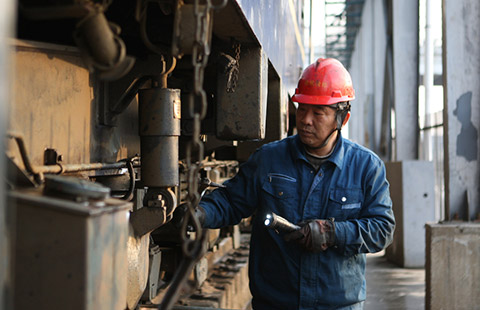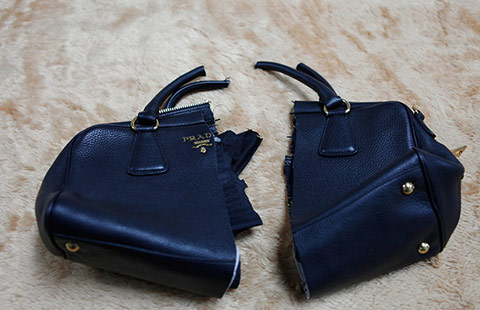Pain and gain of globalization
HANGZHOU/ZHENGZHOU - Quandian village has been in the wig business for over a century. It started out by trading needles, combs and forks for hair clippings, and peddling long, straight hair to German merchants.
The village in Xuchang county, central China's Henan province, has been a beneficiary of globalization and is home to Rebecca Hair Products, China's largest wig maker.
"We have 11 wholly-owned companies in Africa, Britain, Brazil and Cambodia, covering a complete industry chain from R&D, manufacturing and marketing to exportation," said Zheng Wenqing, general manager of Rebecca.
Dividends of globalization
The local residents were among the first in China to feel the benefits of globalization.
Yang Ge, 46, lived an itinerant life seeking jobs, before settling down as a worker for Rebecca in 1995. She is now a manager, lives a decent life and owns four houses.
"Many local residents had their life changed thanks to the burgeoning wig industry," Yang said.
More than 95 percent of Rebecca's workers are locally employed, while 95 percent of the company's revenue of $200 million last year came from exports to the United States as well as Africa and Europe.
In Xuchang city, more than 50 hair companies, with annual exports of over $5 million, bring in a yearly income of $1 billion. Exports by local wig companies account for half the hair product exports in China, the world's top hair product manufacturer and exporter.
Globalization became a hot concept at the start of the 21st century, when Thomas Friedman, author of "The World Is Flat," highlighted that globalization had broken geographical boundaries and created a flat global market.
Open markets not only generated tremendous opportunities, but also led to a corporate "survival of the fittest," a scenario true of China's wig industry.
Losing advantages
Behind the good performance, Rebecca has seen its exports shrink in recent years, dropping by 25 percent in 2016.
Sluggish overseas market demand since the 2008 financial crisis and overcapacity led to a slump in profits for domestic wig producers, according to Wang Xixiang, executive secretary of the China Hair Products Association.
"About one-third of hair companies have closed, while some bigger ones are filing for bankruptcy protection," Wang told Xinhua.
Zhang Baoming saw the underlying risks. He said that the wholesale price of hair strips surged from 10 yuan ($1.45) per kilograms in 1993 to over 400 yuan a decade later. But last year, exports of his company fell 12 percent year-on-year.
The double-edged sword of globalization has made China the world's factory, but also brought issues of poor quality, product homogeneity and increased competition.
Lower levels of the supply chain are moving out of China as its demographic dividend is nearly over, while a decline in incomes and job opportunities has led to rising of populism and advocacy of de-globalization across the world.
Such issues plague economists and are expected to hit headlines at the 47th World Economic Forum in Davos, with Chinese President Xi Jinping in attendance.
"Lack of core competence, poor risk control and failure to cater to changing customer needs amid a softening economy have led to the plights of many enterprises," said Zhu Wei, president of Sanpower's Subsidiary Funtalk Telecommunications, at a roundtable to celebrate the 15th anniversary of China's accession to the WTO, earlier last December.
Need for change
But challenges can be turned into opportunities.
Puyuan, only 12.5 kilometers away from Wuzhen, is the biggest knitwear center in China. Low-cost products prospered in the town and its neighboring regions in the 1990s, but freight growth soon fell from 7 percent to only 1 percent as the global economy cooled.
Puyuan recently regained its reputation, fueled by inspirations from world-class designers.
Italian designer Gian Pietro Muraro, 70, worked with Versace, Yohji Yamamoto and many other major fashion names before discovering Puyuan three years ago.
"I was surprised at Puyuan's strong manufacturing capability. They can produce the new designs in a very short period," Muraro told Xinhua.
Muraro set up a studio committed to original designs in Puyuan, hoping to put local knitwear on the global fashion podium.
Iconic Italian knitwear brand Missoni has decided to put the production line of all its Asian orders here. The future looks bright for Puyuan.
"China's capability in high-end garment manufacturing is second only to Italy," said French designer Stanislssia Kein. "The design here is simple and very popular in Europe."
Though globalization is facing increasing challenges in the future, it will continue to create opportunites for China and countries throughout the world, said Zhao Ping, researcher with China Council for the Promotion of International Trade Academy.























